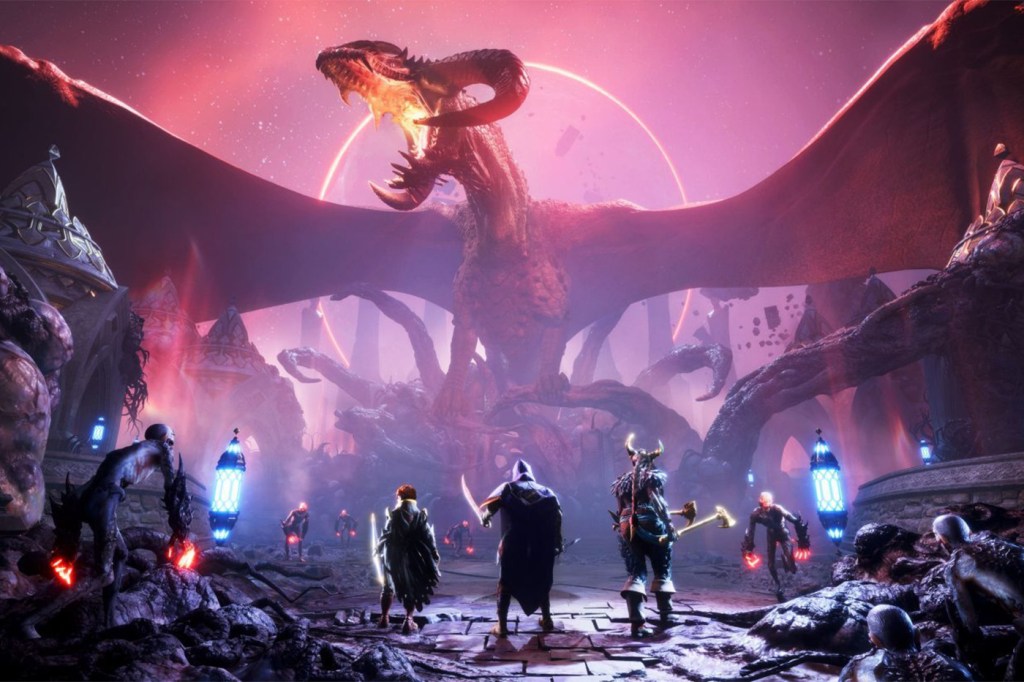‘Dragon Age: The Veilguard’ represents everything wrong with the games industry — just not for the reason you might expect
The upcoming “Dragon Age: The Veilguard” is make or break for renowned game studio Bioware, plagued by recent failures. Its troubled development is also an indictment of big-budget game development, an expert says.

There are only a few months left in 2024, and gamers have already experienced much of what the year had to offer, but there’s still one hotly anticipated game yet to release: “Dragon Age: The Veilguard.”
The fourth installment in Bioware’s Dragon Age fantasy roleplaying series, “The Veilguard” releases on Oct. 31 and carries with it not only the hopes and dreams of fans but the legendary studio that has been working on the game for almost a decade.
After a string of high-profile failures, Bioware, a studio that has shaped Western roleplaying games, is hoping to right the ship with “The Veilguard.” But despite early praise from critics, there is something troubling at the core of “The Veilguard.”
The game has become “very representative of the turmoil of the industry,” says Fox Zarow, an assistant teaching professor of game design at Northeastern University and longtime fan of the series. The story behind the game’s troubled development –– executive staff turnover, multiple significant shifts in creative vision prolonging development, layoffs, even a name change –– is a checklist of the worst parts of big-budget AAA game development, Zarow says.

“If it’s struggling, if it’s received very, very poorly, my only hope is that that is seen as a symptom of the industry and not ‘It turns out there was no Bioware magic,’” Zarow says. “I mean, there wasn’t –– that’s flawed in and of itself –– but I think a lot of people are quite tired of the AAA sphere. Yet there are not a lot of openings for that to change.”
For the longest time, Zarow, like a lot of fans, was convinced the next Dragon Age game would never see the light of day.
The previous game, “Dragon Age: Inquisition,” came out in 2014, and the team working on the next entry in the franchise kept getting pulled away to work on Bioware’s other projects. They canceled one iteration of a Dragon Age sequel and pivoted development away from a multiplayer-focused experience. According to Kotaku, Bioware was also struggling to maintain the core of Dragon Age, a singleplayer narrative-driven roleplaying series, amid financial pressures from its publisher, EA.
In a sea of free-to-play, microtransaction-driven multiplayer games that keep players engaged for years, “The Veilguard” is an odd duck. That goes doubly for EA, which is known for the Madden games and the multiplayer shooter series “Battlefield.”
“‘Dragon Age’ doesn’t fit the formula for typical live service games or a games as service product,” Zarow says. “They make really wonderful narrative RPGs where mostly people are concerned about who it is that they can kiss and which mage is going to betray you.”
If “The Veilguard” is not “the bloated corpse of everything EA wants” and manages to hit with players, Zarow says, it would be a much-needed win for the Dragon Age series and Bioware as a whole. But with EA eying its bottom line, if “The Veilguard” fails commercially or with fans, it could also be the “nail in the coffin for Bioware,” Zarow adds.
Zarow wants “The Veilguard” to be a wake-up call for players to start pushing back against games with ballooning budgets, diminishing employee numbers and often tough labor conditions. The hope, Zarow says, is that the conversation around “The Veilguard” doesn’t stop at the game itself but extends to the human toll of its development. Bioware laid off 50 people in 2023, including veterans with 20 years of experience at the studio.
“[Players are] starting to identify these games are expensive and they’re not really ‘what I’m asking for,’” Zarow says. “It’s more of the same or [has] all these microtransactions. There are these little pain points that haven’t been fully connected to the larger issue of labor.”
“My hope, genuinely, is that the team that has worked on this project on and off for 10 years is not suffering immensely,” Zarow adds. “I don’t need it to be critically acclaimed. I just need them to still have jobs after this.”






